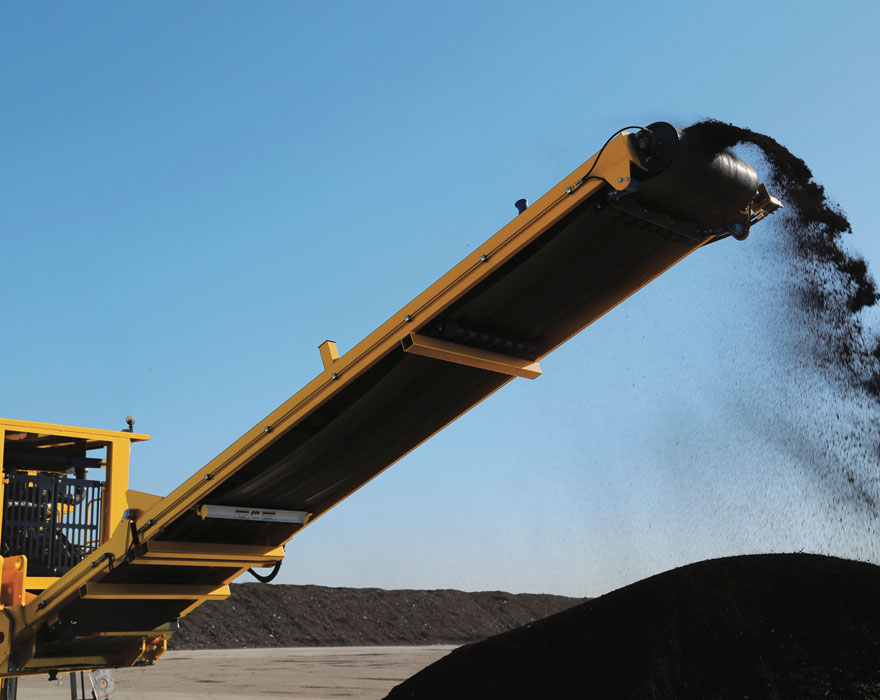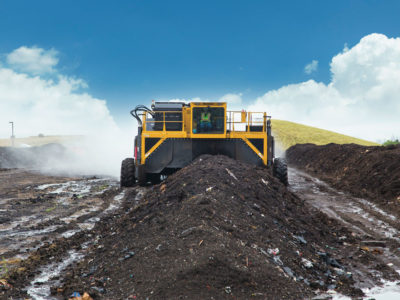The composting industry is growing and it’s ready to disrupt the way other businesses have operated for decades. From farmers using environmentally-friendly, nutrient-rich compost instead of other fertilizers to landscaping companies laying down a fresh bed of compost before laying sod at a new housing development, the world is going to see the value of what the industry produces. In many areas of the country, they already are. And, it’s up to composting facilities like yours to continue to grow the market.
In Part 1 and Part 2 of this series, you learned about the need for creating innovation in your business and how to develop an innovative culture. Now, it’s time to get out there and uncover where your next great idea is and how to maintain that hunger to keep pushing yourself and your people to continue to grow the business.
Your next big breakthrough
You probably won’t find the next big breakthrough in a suggestion box. It likely won’t be spawned by your own set of ideas or expertise either.
So, where is it?
To uncover the ideas that will create innovation, you need to shift your thinking from asking, “What do we need next?” to, “What are the needs of our customers?” Of course, the best way to answer that question is to spend time with them. At Vermeer and other innovative companies, there’s an acronym used to remind everyone about the importance of the voice-of-customer:
NIHITO —”Nothing important happens in the office.”
To discover innovative ideas, you must get out of your day-to-day grind and spend time looking at and discussing other areas of your business and the industry in the field with your customers. Learning the voice-of-customer and spending time out of the office conducting research doesn’t mean making more sales calls. These trips should be focused on your customers and the issues they are facing. Your product or service should be secondary in these conversations.
Ask open-ended questions to get your customers talking about challenges in their business — even outside of your field of expertise. You should think of this process as helping them to peel back each layer of an onion until you get down to their core challenges — that’s where opportunities are. Over time, as you do this type of exercise, you’ll begin to see patterns and common threads of issues that start to rise to the surface. Now, it’s time to begin trying to solve those challenges, and that’s where your next big breakthrough may come from.

Filtering ideas
A challenge you’re likely to face when switching to an innovative culture is coming up with too many ideas. When you invite your team to bring you new ideas and spend time talking with others in the field, you will likely uncover dozens of challenges that should be addressed. For a lot of organizations, this is where innovation ends. They either try to implement all of them or find themselves unable to choose the best ideas to pursue.
To push past this stage of innovation, you need to filter them and make sure they pass the PUP test.
- P — Pervasively found
- U — Urgently needed
- P — Pay to solve
You are searching for the ideas that address real needs that likely weren’t offered up by customers within the first five minutes of a conversation — ideas that will address a need now and that people will gladly pay for. Those are the breakthroughs worth exploring. It’s also how you make sure your team isn’t pursuing too many solutions all at once or standing still under the weight of all the great ideas uncovered.
Long-term commitment
Keep in mind, sometimes huge breakthroughs take time to develop, whether due to regulations, technology or economics, but stay the course and continue to seek ways to make it happen. You may also want to look into protecting your ideas through a patent and/or seek out partners to help make your idea into an innovative product or service.
As you probably know, Vermeer has been in the composting market with grinders since the 90s, but through our voice-of-customer work, we discovered there were other areas of composting operations that were being underserved. So, we did what we do at Vermeer — we looked for ways to meet those needs. We partnered with a company that made quality trommel screens and compost turners, Wildcat Mfg. Co., in 2007 to extend our equipment offerings and alleviate the dependable service challenge customers told us they were experiencing in their businesses. Vermeer acquired Wildcat in 2009 to better meet the industry’s needs through additional product innovation.
This is an example of how other companies can follow this same process to add value for their customers and continue to innovate as a company.
As you can see, innovation doesn’t happen in a day or just inside a conference room. Innovation takes a long-term commitment that requires a lot of legwork and the support of the entire organization, and in some cases an industry.
Good luck with your future innovation endeavors, and remember if you need a sounding board, your local Vermeer recycling and forestry specialist is just a phone call away. These individuals meet with people working in compost and related fields every week and are an excellent resource for your organization.
If you missed the first two parts of the Creating Innovation in Your Composting Business series, you can check them out from the links below:
Now that you know more about the role innovation plays in growing your business, what are you going to do with the information?
Commentary provided by: Ted Dirkx
Ted Dirkx is an applications specialist for Recycling and Forestry at Vermeer Corporation. After studying composting and graduating with a degree in environmental studies from Central College, he joined equipment manufacturer Vermeer Corporation in Pella, Iowa. Traveling about 30 weeks a year, he has been roaming North America and beyond, helping organizations set up compost facilities, manufacture mulch, clear land and produce biofuels. As he interacts with operations, he is a curious learner of all things that make their operations successful. He has presented at the Compost Council of Canada Conference, Canadian Wood Waste Recycling Association, Biocycle Conference and United States Composting Council Conference on topics related to operational efficiency and maintenance.
Vermeer Corporation reserves the right to make changes in product engineering, design and specifications; add improvements; or discontinue manufacturing or distribution at any time without notice or obligation. Equipment shown is for illustrative purposes only and may display optional accessories or components specific to their global region. Please contact your local Vermeer dealer for more information on machine specifications.
Vermeer and the Vermeer logo are trademarks of Vermeer Manufacturing Company in the U.S. and/or other countries.
